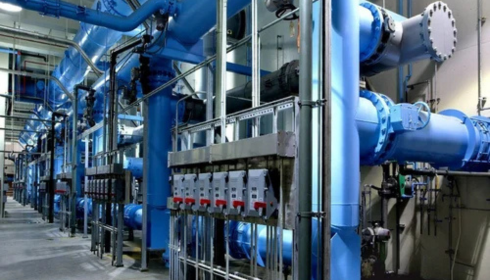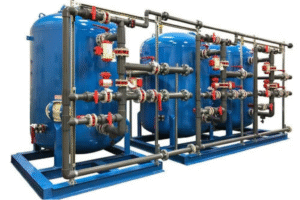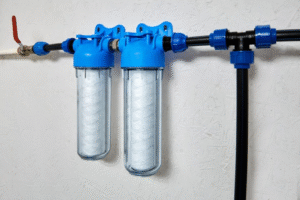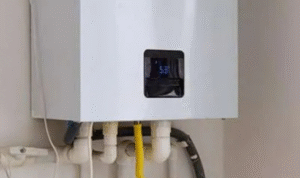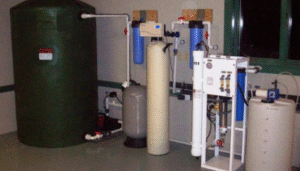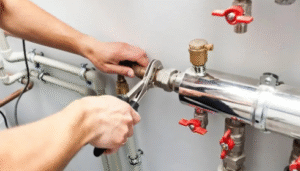It’s easy to take water for granted. You turn on the tap, fill a glass, and move on with your day. But behind that simple act is a web of systems quietly working to keep your water clean and safe. And when something goes wrong, it doesn’t just ruin your morning routine—it can disrupt entire neighborhoods, businesses, and even hospitals. That’s why the people who step in during those critical moments, the engineers, contractors, and specialists who handle water treatment, deserve more attention than they usually get.
The Urgency of Repairs You Can’t Postpone
Imagine this: you wake up one morning, and your community’s water supply suddenly tests high for contaminants. Panic spreads, bottled water disappears from shelves, and residents start demanding answers. In that moment, you don’t have the luxury of waiting weeks for scheduled maintenance. You need an emergency water treatment repair service, the kind of team that arrives fast, knows what they’re doing, and can stabilize a system before the damage gets worse.
The reality is, water isn’t optional. Unlike a broken furnace or a power outage, contaminated water puts lives at risk instantly. Businesses, especially food service, manufacturing, and healthcare, can’t afford delays. Every hour matters, and repair specialists know they’re not just fixing machines—they’re restoring trust in the water people drink.
Building for the Long Haul
Of course, repairs are just one side of the coin. The other is building water infrastructure that’s resilient enough to handle pressure from rapid urban growth, aging pipelines, and unpredictable weather patterns. A wastewater treatment plant installation isn’t just another construction project; it’s a promise to the community that their waste will be handled responsibly and that rivers and lakes downstream won’t pay the price.
These projects are massive undertakings, often stretching across months or years, and they combine engineering precision with environmental stewardship. From advanced filtration systems to energy-efficient aeration, the modern plants being installed today are designed with both sustainability and scale in mind. And while the average person may never set foot inside one, the clean water flowing back into the ecosystem tells the story better than any ribbon-cutting ceremony could.
Why Local Knowledge Changes Everything
Here’s a detail many people overlook: not all water is the same. A town in Arizona battles different water issues than a farming community in the Midwest or a coastal city in Florida. Minerals, industrial runoff, agricultural chemicals—all of these factors vary depending on geography and local industry. That’s why searching for local water treatment companies near me often makes more sense than hiring a distant provider with no ties to your region.
Local companies bring context. They’ve seen the quirks of the nearby water table, they know the seasonal issues, and they often maintain long-standing relationships with municipal managers. This kind of trust and familiarity shortens the time it takes to diagnose problems and find solutions. Plus, there’s something reassuring about working with people who are just as invested in your town’s future as you are—they live there too.
The Hidden Challenges Nobody Talks About
Water treatment isn’t glamorous. Behind the scenes, it’s long hours, technical troubleshooting, and constant compliance with evolving regulations. When systems break down, operators sometimes face public criticism even if they weren’t at fault. And when a new plant is proposed, opposition can rise quickly from people who fear construction noise, cost increases, or environmental impacts.
Yet without these systems, cities wouldn’t function. Schools couldn’t serve lunch safely, hospitals couldn’t sterilize equipment, and manufacturers couldn’t operate machinery dependent on precise water chemistry. It’s the kind of work that, when done well, becomes invisible—which is probably why so many people forget how fragile the whole setup really is.
Preparing for the Next Crisis
If recent years have taught us anything, it’s that disasters—whether natural or man-made—can arrive without warning. Droughts, floods, industrial accidents, and even cyberattacks on municipal infrastructure have put water systems at risk. Communities that have invested in strong treatment facilities, clear emergency protocols, and relationships with skilled local providers bounce back faster.
Preparation doesn’t guarantee perfection, but it reduces panic. A community that knows who to call, where backup systems are located, and how to communicate clearly during outages can turn a potential catastrophe into a manageable challenge. That kind of readiness requires not just government funding but also public awareness and respect for the people who maintain water systems daily.
A Call for Awareness and Support
The truth is, water treatment professionals are unsung heroes. Most of us never think about the pumps, filters, tanks, and labs quietly humming away in the background. We notice only when something goes wrong. But perhaps it’s time we give more attention to the infrastructure that sustains life as we know it.
Supporting water treatment means more than paying bills on time. It means backing community projects, understanding why rate increases sometimes happen, and voicing support when cities propose much-needed upgrades. It also means educating ourselves—because the more we know about how water gets from rivers and reservoirs to our taps, the better prepared we’ll be when systems falter.
Final Thoughts
Water is the quiet backbone of daily life. When it flows clean, we barely notice. When it’s compromised, everything stops. Whether it’s a technician rushing out in the middle of the night to restore a broken filter or a team of engineers designing a state-of-the-art treatment plant, the work is essential, constant, and deeply human.
So the next time you sip a glass of water, pause for a second. Think about the unseen effort behind that simple act. Somewhere, someone is making sure your glass isn’t just full—but safe. And that, in its own way, is one of the greatest public services we could ask for.
